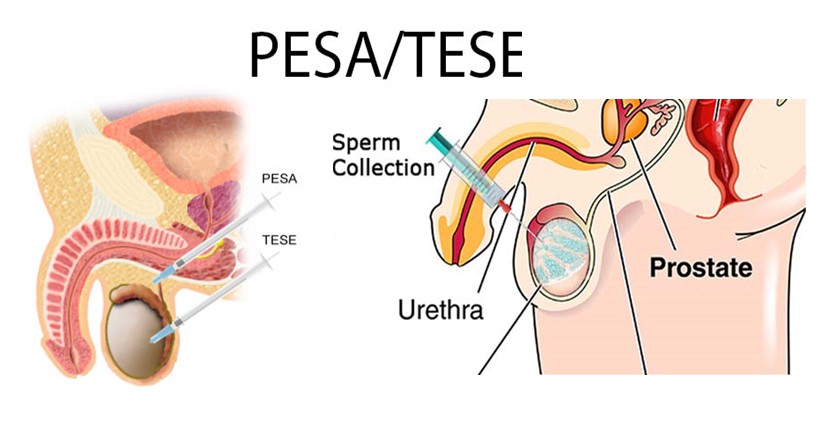TESE

TESE (testicular sperm extraction)
A surgical sperm retrieval procedure carried out under local anesthesia. During the procedure a sperm sample may be retrieved from the testes using a small needle aspiration without making a skin incision. The retrieved sperm which have been extracted from the testes is injected in each egg using ICSI (Intra cytoplasmic Sperm Injection) technique for fertilizing the eggs.
When there is no sperm was retrieved by MESA technique, the TESE is performed. Sometimes there is no sperm, either due to blockage in the route between sperm production and ejaculation or partial or complete failure in the sperm production, these men with obstructive and non- obstructive azoospermia is suitable for TESE.
Sperm Bank

Sperm Bank
Donor sperm and artificial insemination makes it possible for couples to experience pregnancy even when man’s semen has no sperm or for any other reason, his sperm cannot be used. The procedure is most commonly recommended when the pregnancy is not achieved by the female due to sperm abnormality or agenesis of sperm. The baby produced with the sperm donor is naturally or biologically related to the donor.
With the artificial insemination, the sperm is donated by the donor and prior to this, semen analysis will be performed and samples are collected for infection tests. A technique of sperm storage was introduced more than thirty years ago that allows a man to preserve his potential for indefinite period of times whether for days, months or years, this is known as sperm banking and cryopreservation
ICSI
ICSI (intracytoplasmic sperm injection)
A subsidiary part or specialized form of In Vitro Fertilization, ICSI is used for the treatment of male infertility. A simple procedure of injecting a single live sperm into an egg is known as Intracytoplasmic Sperm Injection (ICSI). Followed by IVF, ICSI requires mature eggs from female partner and semen sample from male partner.
Embryologist separate live healthy moving sperm from the semen sample and after 2 to 3 hours of egg retrieval, he/she removes the outer coating of eggs to ensure that eggs are mature enough to undergo ICSI because immature eggs cannot be injected. With great precision, Embryologist inserts a needle holding sperm into the egg. These injected eggs are then placed in an incubator in laboratory overnight.
The technique is likely to be recommended in case of low sperm count and other male infertility factors including damaged or missing vas deferens and previous attempt of IVF failure.
ICSI require more handling and care than standard IVF, however during the procedure there is a very small chance that egg may be damaged resulting in non-viable egg. The woman’s age matter a lot for the success of ICSI and there is yet no convincing evidence regarding the birth defects in children born as a result of ICSI.
PGD
PGD (preimplantation genetic diagnosis)
Many women are out there facing frequent pregnancy loss. Genetic issues are one of the reasons for repeated pregnancy loss. Loss in pregnancy is frustrating and emotionally draining experience, but a big thanks to advanced medical science that provides you treatment options that can help you for the same such as preimplantation Genetic Diagnosis.
An advanced IVF procedure called preimplantation genetic diagnosis (PGD) for short is a genetic test performed by an embryologist where retrieved eggs during IVF are screened for genetic abnormalities. Some genetic diseases are directly linked to X or Y chromosomes and therefore it will be useful to check also the sex chromosomes.





